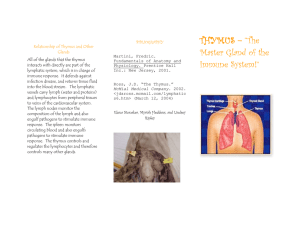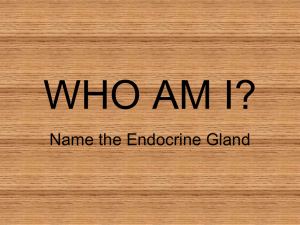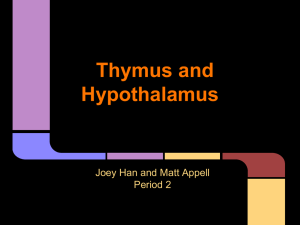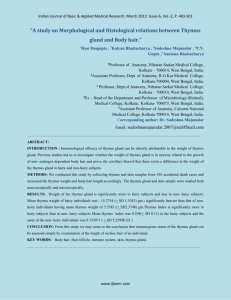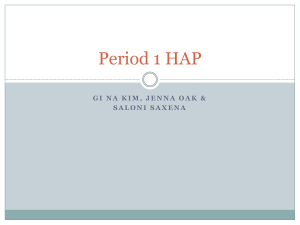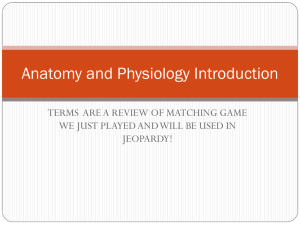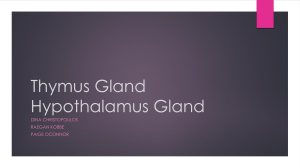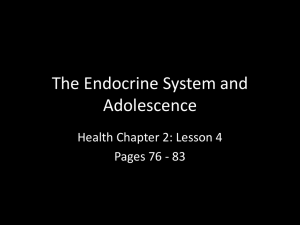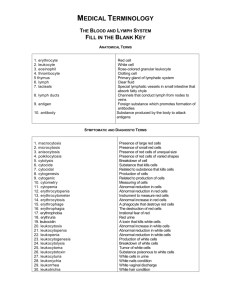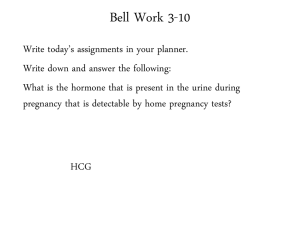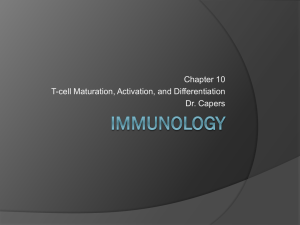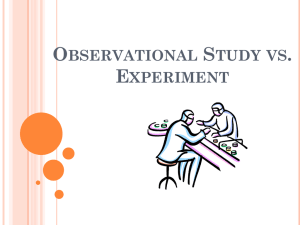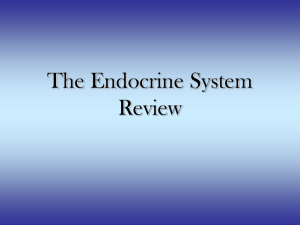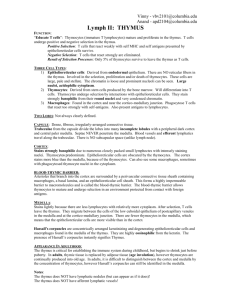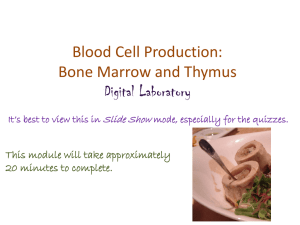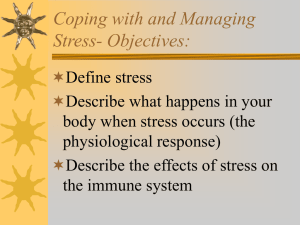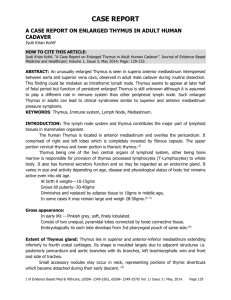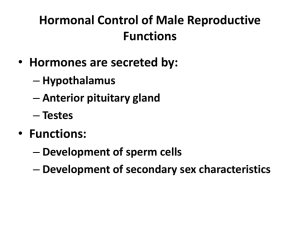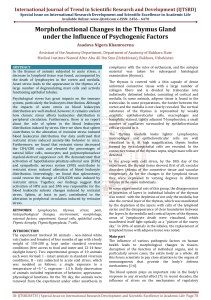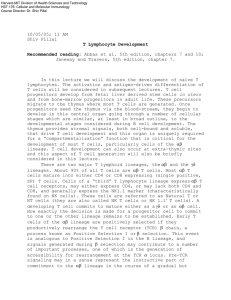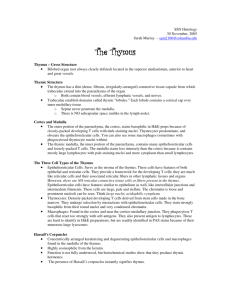Thymuscoffeywilkins
advertisement
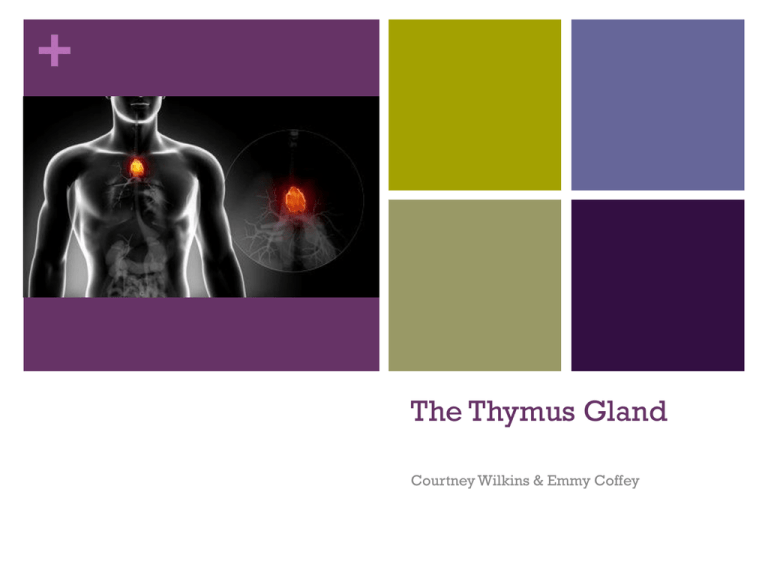
+ The Thymus Gland Courtney Wilkins & Emmy Coffey + What is it? Main organ of lymphatic system Assist in growth and sexual development Made of lymphoid tissue consisting of tightly packed white blood cells and fat. 2 lobes Each lobule has inner region called the medulla and outer region called the cortex Cortex contains immature T-lymphocytes, not yet ready to distinguish body cells and foreign cells Medulla contains mature cells + Where is it? Located immediately beneath the breast bone at the level of the heart Made up of two lobes in front of the trachea + Hormones this gland produces Thymosin-causes T lymphocytes to mature and grow, increases immune responses, stimulates pituitary gland hormones 3 thymosins: alpha, beta, gamma Thympoeitin & thymulin makes it possible to distinguish Tlymphocytes and enhances T-cell function thymic humoral factor (THF) increases immune responses particularly to viruses + Affect on human body Transform lymphocytes (white blood cells that were made in the bone marrow) into T cells. T cells are sent off to different lymph glands, where they fight infections and disease Mainly affects newborns/children Thymus gland begins as size of apple and begins to decrease in size once puberty hits + Maintaining Homeostasis Thymus gland is necessary to fight infections. Without it, as a child you’d have immune deficiency. Scientists are trying to determine if your thymus gland doesn’t shrink, would the human body fight HIV/AIDS, cancer etc. better. Most of immune development occurs before birth, so removing the thymus gland, due to complications, may not cause problems for them. + Feedback mechanisms and antagonistic hormones Thymus is part of the immune system so it does not have many feedback mechanisms. There are no antagonistic hormones. Hormones that act to return body conditions to within acceptable limits from opposite extremes are called antagonistic hormones. + What happens if the gland doesn’t function properly? How do you treat the problem? You can have immune deficiency. Dr Jacques Miller discovered that the thymus gland is very important for the defense against infections and disease. Removed the thymus glands from newborn mice and found that they were more susceptible to infection/disease and in most cases died. A couple ways to help treat a malfunctioning thymus are to get a transplant, have immune cell infusions, or simply treat the infections you get with prescribed antibiotics. + http://www.ask.com/question/what-hormone-does-thethymus-gland-produce http://www.innerbody.com/image_endoov/lymp04new.html#full-description http://biology.about.com/od/anatomy/ss/thymus.htm http://www.wehi.edu.au/about_us/achievements/professor_j acques_miller/
